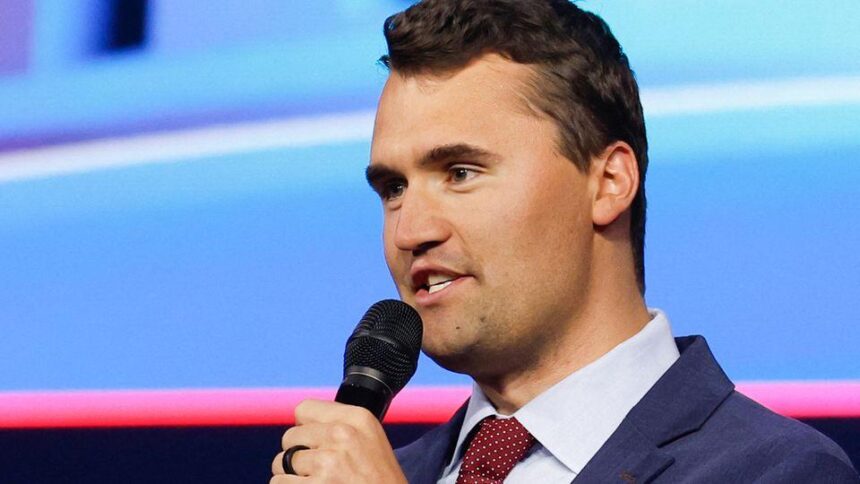In the realm of contemporary political discourse, few figures have stirred as much controversy as Charlie Kirk, the founder of Turning Point USA. Recently, Kirk found himself at the center of a heated debate following a joking remark about the violent attack on Paul Pelosi, husband of House Speaker Nancy Pelosi. His comment, suggesting that a so-called “patriot” should come to the aid of the assailant, has sparked widespread backlash and raised critical questions about the implications of political rhetoric in an increasingly polarized environment. As the nation grapples with issues surrounding political violence and accountability, this incident serves as a timely reminder of the power and potential consequences of public figures’ words. This article delves into the context surrounding Kirk’s remarks, the reactions from various political factions, and what this controversy reveals about the current state of American political dialogue.
Charlie Kirk’s Controversial Remarks: Analyzing the Impact on Political Discourse
Charlie Kirk’s recent remarks regarding the attack on Paul Pelosi have ignited a fierce debate within political circles and beyond. By joking about the incident and suggesting that a “patriot” should bail out the alleged attacker, Kirk has raised questions about the boundaries of political discourse. This incident reflects a troubling trend where humor and mockery intermingle with serious issues, prompting reactions that range from outrage to indifference. The implications of his comments extend far beyond a single joke; they signal a normalization of violence in political rhetoric, which can desensitize audiences to real-world repercussions.
Further analysis reveals that Kirk’s comments, while intended as humor, undermine the gravity of political violence and its victims. As public figures wield significant influence, their words can shape perceptions and attitudes, especially among younger audiences who view social media as a primary news source. Consider the following points that underline the impact of such comments on political discourse:
- Normalization of Violence: Joking about attacks can trivialize serious issues and encourage a culture that dismisses the consequences of aggression.
- Division and Polarization: Remarks like these often deepen partisan divides and create an “us vs. them” mentality.
- Impact on Political Engagement: Such comments may discourage constructive dialogue, pushing individuals toward extreme positions rather than fostering understanding.
In examining the fallout from Kirk’s statements, it becomes clear that while provocation may attract attention, it risks inciting further division. The role of influential figures in shaping political dialogue cannot be overstated, and as such, the responsibility to speak thoughtfully remains paramount in our increasingly polarized society.
The Role of Humor in Politics: When Jokes Cross the Line of Acceptability
The recent remarks made by Charlie Kirk regarding the attack on Paul Pelosi have sparked substantial controversy and highlighted the delicate line that exists between humor and insensitivity in political discourse. While satirical commentary is a tool often employed to critique political figures and situations, Kirk’s suggestion that a ‘patriot’ should bail out the perpetrator raises important questions about the ethical boundaries of political jokes. In an era where social media amplifies voices and positions cannot be taken lightly, the responsibility of public figures to foster constructive dialogue rather than sensationalize violence becomes increasingly paramount.
Such instances underscore a growing divide in public perceptions of humor’s role in politics, where acceptability is often subjective and influenced by context. Many argue that jokes about violent incidents dehumanize victims and trivialize serious issues, while others contend that comedic relief can serve as a coping mechanism in the face of societal distress. The potential ramifications of these statements can be significant, leading to a broader conversation about media literacy and the impact of rhetoric on public sentiment. Below is a brief overview of various perspectives surrounding the issue:
| Perspective | Viewpoint |
|---|---|
| Pro Humor | Jokes can facilitate discussion and critique political actions. |
| Against Humor | Jokes trivialize violence and can incite further harm. |
| Context Matters | The appropriateness depends on timing and audience perception. |
Bail or No Bail: Implications of Supporting Violence in Political Rhetoric
In a contentious political climate, remarks made by influential figures can reverberate through the fabric of our society, shaping public perception and behavior. Recently, Charlie Kirk’s quip regarding the assault on Paul Pelosi, where he nonchalantly suggested a “Patriot” should bail out the attacker, has ignited a wildfire of debate. Such statements may seem like throwaway lines, but they resonate with various segments of the population, particularly those who might already harbor extremist views. The normalization of violence in political rhetoric can create an environment that not only condones but actively encourages aggressive actions against political opponents.
Implications of such statements extend beyond mere jokes. They can contribute to a mindset where violence is viewed as a legitimate form of political expression. This becomes alarming when individuals align themselves with this ideology, leading to actions that threaten democratic processes and societal stability. The gravity of encouraging support for violent acts, even in jest, cannot be underestimated. A closer examination reveals that the rhetoric can embolden particular factions who may interpret such comments as tacit approval for their own violent inclinations. To better understand the risks, consider the following table illustrating the potential trajectory of rhetoric-to-action correlations:
| Rhetoric | Public Reaction | Potential Consequences |
|---|---|---|
| Normalization of Violence | Increased Support for Extremism | Heightened Political Violence |
| Jokes About Serious Attacks | Desensitization to Violence | Acceptance of Aggression |
| Calls for Bailouts of Offenders | Hero Worship of Attackers | Legal and Social Ramifications |
The Way Forward
In conclusion, the remarks made by Charlie Kirk concerning the attack on Paul Pelosi have ignited a significant debate about the intersection of humor and serious political discourse. As public figures navigate the complex landscape of political expression, the implications of such statements extend beyond mere comedy. They raise critical questions about accountability and the responsibility that comes with platform and influence. As audiences reflect on the content and context of Kirk’s comments, it serves as a reminder of the powerful role rhetoric plays in shaping public perception and dialogue. In an era where political polarization continues to deepen, finding common ground may be increasingly vital – yet statements like these risk further entrenchment in divisive narratives. Moving forward, it is essential for both leaders and constituents alike to critically assess the impact of their words in the broader societal context.









